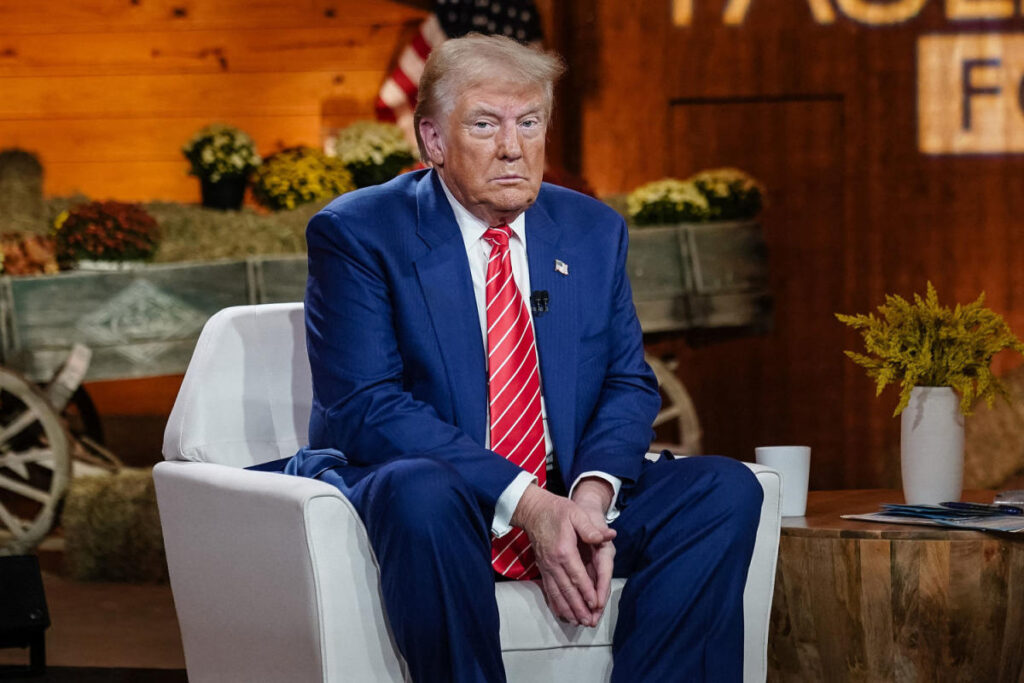On January 6, 2021, a significant turning point in American history occurred when thousands of Donald Trump’s supporters, fueled by false claims regarding the 2020 election, stormed the U.S. Capitol, resulting in a violent confrontation with law enforcement and a direct attack on the democratic process. In the aftermath of this unprecedented event, Trump attempted to distance himself from the rioters, describing their actions as a “heinous attack” and asserting that those engaging in “violence and destruction” did not represent the United States. This response, however, paved the way for a massive investigation led by the FBI, the largest in the agency’s history, which eventually led to over 1,500 arrests and more than 600 convictions, highlighting the gravity of the situation and the extent of the ongoing repercussions for those involved.
As Trump campaigns for the presidency in 2024, his rhetoric concerning the events of January 6 has notably softened. During a recent event, he referred to that day as “a day of love,” eliciting outrage from those who suffered due to the attack. Former Capitol Police Sergeant Aquilino Gonell, who sustained injuries during the siege, expressed deep frustration at Trump’s revisionist narrative, emphasizing the lasting impact of that day on his life and the lives of many others. Gonell’s comments underscore the dissonance between Trump’s characterization of the events and the reality experienced by law enforcement and victims of the violence, as he lamented the loss of his career, health, and financial stability as a direct result of the attack.
Trump’s evolving stance on the January 6 riots marks a notable departure from his initial condemnation. He has not only embraced those who participated, labeling them as “patriots” and “victims,” but he has also extended support to individuals charged in connection with the attack through fundraisers and comments suggesting he may consider pardoning them. The implications of this rhetoric are substantial, as it not only reflects Trump’s shift toward endorsing the mob’s actions but potentially emboldens similar sentiments among his supporters, complicating the broader dialogue about accountability and the underlying message regarding law and order.
This shift in discourse is further compounded by the willingness of certain Republican figures to promote conspiracy theories regarding the events of January 6, suggesting that the individuals involved were misrepresented or acted under false pretenses. Such narratives have frustrated various federal judges who see these views as a threat to democracy and a distortion of accountability that could incite future violence. Legal professionals and judges have voiced concerns that such rhetoric may hinder judicial proceedings and undermine the foundational principles of American governance, emphasizing that the consequences of the attack and the context surrounding it remain a critical issue that must be addressed.
Prominent judges have echoed similar sentiments, arguing that the ongoing acceptance of conspiracy theories and misinformation regarding the 2020 election and January 6 continues to cast a shadow over American democracy. They warn of the long-term implications this phenomenon fosters and the necessary accountability that must accompany truth-telling about the events of that day. The judiciary’s reaction signals a massive echoing concern about the future of political discourse and the potential for the normalization of violence as a means of political expression, which may have profound ramifications for democratic institutions.
In summation, the trajectory of Trump’s rhetoric and the political environment surrounding January 6 demonstrate a troubling shift that complicates dialogues of accountability and justice. As Trump embraces a narrative that seeks to sanitize the actions of the rioters, the implications for law enforcement, democracy, and societal cohesion become increasingly dire. Lawmakers and judicial figures alike continue to grapple with the fallout from that day, emphasizing the need for a return to truth and accountability if democracy is to withstand the pressures of misinformation and political violence. Ultimately, the legacy of January 6 serves as a critical reminder of the fragility of democratic processes and the essential duty of citizens to hold those in power accountable.

